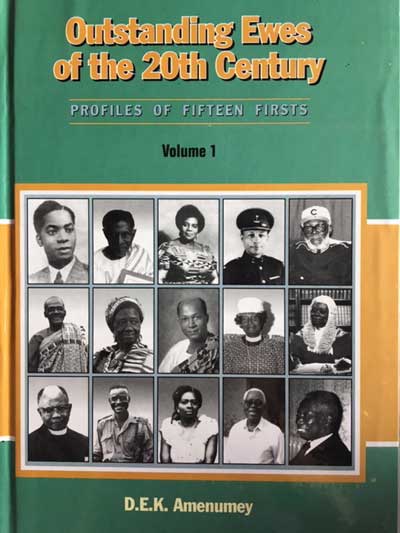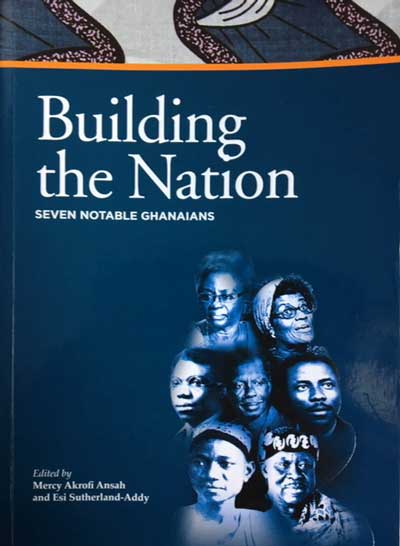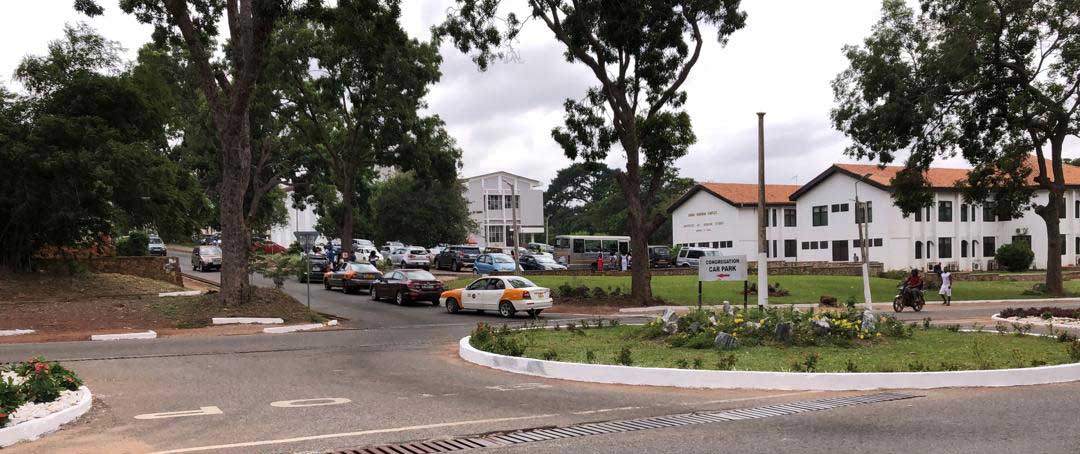Dr Kate Skinner reflects on the extraordinary life of the late Annie Jiagge, and its implications for Ghanaian women’s activism.
Later this year, I will be searching in the United Nations archives for information about Ghanaian women’s involvement in international women’s mobilisations. By way of preparation, I have been reading about Annie Jiagge, who served as Ghana’s representative on the United Nations Commission on the Status of Women for a decade (1962 to 1972), and made an important contribution to the formulation of women’s rights as human rights that are enshrined in international law.
Born in 1918, Annie Jiagge (née Baëta) had most of her schooling in the Ewe-speaking town of Keta on the south-eastern coastline of the then Gold Coast (now Ghana). After achieving a distinction in the standard VII examinations, she proceeded to Achimota College to train as a teacher. In 1938, she took up her first teaching post in the Ewe Presbyterian Girls’ School in Keta, where she was soon promoted to head teacher.[1]
Despite her successes in the teaching profession, Annie decided to become a lawyer. With the financial support of her mother, she travelled to London, where she studied at the London School of Economics and Lincoln’s Inn. She returned to the Gold Coast in 1950 to practise as a barrister, but following her marriage in 1953, she became a magistrate. Ghana became independent of Britain in 1957 under the Convention People’s Party government of Kwame Nkrumah. By 1961, Annie Jiagge had been appointed as a high court judge – one of first women in the Commonwealth to achieve such a position.[2]
Following her appointment to the United Nations Commission on the Status of Women, Annie Jiagge drafted a working document which became the Declaration on the Elimination of Discrimination Against Women. The declaration was adopted by the United Nations General Assembly in 1967. Plans to strengthen the principles of the declaration, by transforming it into a binding international convention, were given impetus by the International Women’s Year (1975). Work proceeded through the first few years of the United Nations Decade for Women.[3]
In 1979, the General Assembly approved Convention of the Elimination of All Forms of Discrimination Against Women (CEDAW). Ghana, along with 63 other states from all around the world, signed the CEDAW in July 1980, at the Copenhagen Conference that marked the mid-way point of the United Nations Decade for Women.[4]
Meanwhile, back in Ghana, Annie Jiagge had also been instrumental in establishing the National Council on Women and Development. The mandate for such national councils came from United Nations resolution 3275 (XIX) . In view of the impending International Women’s Year, the resolution recommended member states that had not already done so to establish as a matter of priority, “national machinery to accelerate the integration of women into development and to eliminate discrimination on grounds of sex.”
Later, the “national machinery” approach in Ghana and in other African countries came under criticism.[5] However, working within the constraints of the military government of General I. K Acheampong, Annie Jiagge held consultations with Ghanaian women in the build-up to the first World Conference on Women (Mexico City, 1975). These consultations prompted Annie Jiagge and Esther Ocloo to improve women’s access to microcredit through the Women’s World Banking initiative.[6]
Annie Jiagge led a remarkable life. Aspects of this life can be traced in her own writings, including those on women’s political rights. She was interviewed numerous times, including for the United Nations-sponsored film Fear Woman, which featured Annie Jiagge alongside two other prominent Ghanaian women – the Fante chief Nana Okosampa VI, and the businesswoman Esther Ocloo. Following her death in 1996, a large number of tributes were made to Annie Jiagge, including one by former United Nations Secretary General Boutros Boutros-Ghali.
 It is not surprising, then, that biographical researchers have also been attracted to Annie Jiagge. In 2002, D. E. K. Amenumey (emeritus professor of the University of Cape Coast) identified her as one of the Outstanding Ewes of the 20th Century. In 2012, Josephine Dawumi wrote an entry for Annie Jiagge in the Dictionary of African Biography (edited by Emmanuel Akyeampong and Henry Louis Gates and published by Oxford University Press).
It is not surprising, then, that biographical researchers have also been attracted to Annie Jiagge. In 2002, D. E. K. Amenumey (emeritus professor of the University of Cape Coast) identified her as one of the Outstanding Ewes of the 20th Century. In 2012, Josephine Dawumi wrote an entry for Annie Jiagge in the Dictionary of African Biography (edited by Emmanuel Akyeampong and Henry Louis Gates and published by Oxford University Press).
 More recently, her story has been told (along with that of six other notable Ghanaians) in Building the Nation (edited by Mercy Akrofi Ansah and Esi Sutherland-Addy, and published by the Institute of African Studies, Ghana). In their chapter on Annie Jiagge, Deborah Atobrah and Albert K. Awedoba include examples of cases that came before Justice Jiagge in Ghanaian courts and the judgements that she made.[7]
More recently, her story has been told (along with that of six other notable Ghanaians) in Building the Nation (edited by Mercy Akrofi Ansah and Esi Sutherland-Addy, and published by the Institute of African Studies, Ghana). In their chapter on Annie Jiagge, Deborah Atobrah and Albert K. Awedoba include examples of cases that came before Justice Jiagge in Ghanaian courts and the judgements that she made.[7]
These biographical works suggest some ways in which Annie Jiagge’s unique story might be connected those of other Ghanaian women in the public space. Firstly, teaching was a respectable career for women of her generation, and provided a level of training and experience that enabled them to branch out into many other activities.
Secondly, faith was central to Annie Jiagge’s life. Church activities took place at local, national, and international levels, creating opportunities for women from Ghana and many other countries to show leadership in different contexts, to travel, and to learn from one another. Annie Jiagge’s church activities ranged from the formation of a girls’ choir in Keta, to the founding of Young Women’s Christian Association Hostel for migrant girls in Accra, to her election as president of the World Council of Churches (1980).
Finally, Annie Jiagge’s legal career, and her contribution to the formulation of the CEDAW, provide a concrete instance of how national and international legal frameworks interact, and how abstract distinctions between ‘public’ and ‘private’ are challenged by women’s activism. Discrimination against women occurred, and continues to occur, not only in the so-called ‘public’ arena (for example, in formal employment, or in the right to vote). It also occurs within the so-called ‘private sphere’ of marriage and the family.
Hence Annie Jiagge’s concern with the legal regulation of matters such as age of marriage, consent to marriage, registration of marriages, maintenance and custody of children, inheritance and divorce. A longer tradition of activism on these issues within Ghana has been reinforced by the CEDAW (particularly article 16), and it has enabled new initiatives to be taken forward by the next generation.
To this day, the CEDAW remains crucial in defining discrimination, and setting out the obligations on states to enact laws and formulate policies that eliminate discrimination. Meanwhile, thousands of students of law, history, politics, international relations and gender studies will continue to walk along Annie Jiagge Road on the Legon campus.

Notes:
[1] D. E. K. Amenumey, Outstanding Ewes of the 20th Century: profiles of fifteen firsts (Accra: Woeli Publishing Services, 2002), pp. 90-93.
[2] Ibid, p. 94. We are grateful to Adekunle Gomez for drawing our attention to Justice Anna Chandy of India who became a high court judge in 1959.
[3] ‘Short History of the CEDAW Convention’.
[4] Ibid. See also the list of states parties which have signed and ratified the CEDAW here.
[5] Dzodzi Tsikata, ‘National machineries for the advancement of women in Africa: Are they transforming gender relations?’.
[6] Deborah Atobrah and Albert K. Awedoba, ‘A Trail-Blazer, An Outstanding International Jurist, A Humanitarian, An Ecumenical Christian And More…The Life of Justice Annie Jiagge (Née Baëta)’ in Mercy Akrofi Ansah and Esi Sutherland-Addy (eds), Building the New Nation: Seven Notable Ghanaians (Institute of African Studies, University of Ghana, 2018), p. 47-9.
[7] Ibid, pp. 19-28.

Thank you for the acknowledgement [note 2]; only noticed this today and very much appreciated.
2021 marks the 60th anniversary of the late Justice Annie Jiagge’s High Court appointment.